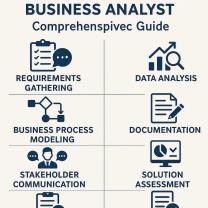How to choose the best board of directors?
Selecting the right board of directors is crucial for the effective governance and success of an organization. Whether you are a for-profit corporation, a non-profit entity, or a government agency, here are key considerations for choosing the best board of directors:
Define Clear Objectives:
- Before you begin the selection process, define your organization's specific goals, needs, and strategic direction. Understanding what you aim to achieve will help you identify the skills, expertise, and diversity required on the board.
Diversity of Expertise:
- Assemble a board with diverse expertise and backgrounds that align with the organization's mission and strategic goals. Consider members with financial, legal, industry-specific, and governance expertise.
Ethical and Professional Standards:
- Seek individuals who uphold high ethical and professional standards. Board members should act in the best interests of the organization and its stakeholders, putting ethical behavior at the forefront.
Independence:
- Balance board composition with a mix of independent and non-independent members. Independent directors can provide impartial judgment and oversight, particularly in publicly traded companies.
Strategic Thinkers:
- Look for individuals who can think strategically and contribute to the organization's long-term vision. Strategic thinkers can help guide the organization toward growth and success.
Leadership Skills:
- Board members should possess leadership qualities. They need to lead by example, collaborate effectively, and make sound decisions for the organization.
Communication and Collaboration:
- Board members should be effective communicators and able to work collaboratively with other directors, the executive team, and stakeholders.
Commitment and Availability:
- Ensure that board members are committed to their roles and have the time to attend meetings, participate in committees, and stay engaged with the organization. Avoid individuals who have conflicts of interest or excessive time constraints.
Industry Knowledge:
- Depending on your organization's sector, it can be beneficial to have board members with industry-specific knowledge and experience. They can provide insights and connections that are invaluable.
Cultural Fit:
- Assess whether potential board members align with the culture and values of the organization. Cultural fit is essential for cohesive decision-making and a harmonious board dynamic.
Size of the Board:
- Consider the appropriate size for your board, which can vary depending on the organization's size and complexity. Smaller boards may be more agile, while larger boards may provide a broader range of expertise.
Term Limits:
- Establish term limits for board members to ensure regular turnover and fresh perspectives. Term limits can help prevent stagnation and promote board renewal.
Recruitment Process:
- Develop a transparent and well-structured recruitment process. Advertise board positions, conduct interviews, and evaluate candidates based on the organization's needs and criteria.
Board Evaluations:
- Implement a regular evaluation process for the board's performance and individual board members. This allows for continuous improvement and identifies areas that may need attention.
Legal and Regulatory Requirements:
- Be aware of legal and regulatory requirements related to board composition, particularly in public companies and non-profit organizations. Ensure that your board meets these requirements.
Succession Planning:
- Develop a succession plan to identify and groom potential future board members. This ensures a smooth transition when existing members' terms end.
Training and Development:
- Provide orientation, training, and ongoing development opportunities for board members to enhance their effectiveness in their roles.
Choosing the best board of directors is a strategic decision that can significantly impact your organization's governance, direction, and overall performance. It's essential to maintain a balance of skills, backgrounds, and perspectives that align with your organization's needs and objectives. Additionally, fostering a culture of transparency, accountability, and strong communication within the board can contribute to its success.
Selecting the Best Board of Directors: Criteria and Considerations
When selecting the best board of directors, companies should consider the following criteria:
- Skills and experience: Board members should have the skills and experience necessary to oversee the company's business and to provide strategic guidance.
- Independence: Board members should be independent of the company's management team and should be able to make decisions in the best interests of the company and its shareholders.
- Diversity: Board members should come from a variety of backgrounds and perspectives, which will help to ensure that the board is making informed decisions.
Characteristics of Effective Board Members
Effective board members typically possess the following characteristics:
- Strategic thinking: Effective board members are able to think strategically and to develop long-term plans for the company.
- Business acumen: Effective board members have a strong understanding of business principles and practices.
- Financial literacy: Effective board members are able to understand and analyze financial statements.
- Leadership skills: Effective board members are able to lead and motivate others.
- Communication skills: Effective board members are able to communicate effectively with other board members, management, and shareholders.
Recruitment and Nomination Processes for Boards
There are a number of different ways to recruit and nominate board members. Some companies have a nominating committee that is responsible for recommending new board members to the full board. Other companies use search firms to identify and recruit potential board members.
When recruiting and nominating board members, companies should consider the following factors:
- The company's current needs: The company should identify the skills and experience that it needs on the board.
- The company's culture: The company should look for board members who will fit in with the company's culture and values.
- Diversity: The company should strive to have a diverse board in terms of background, experience, and perspectives.
Role and Responsibilities of a Board of Directors
The board of directors is responsible for overseeing the management of the company and for protecting the interests of shareholders. The board's specific duties and responsibilities vary depending on the company's size and structure, but they typically include:
- Hiring and firing the CEO
- Setting the CEO's compensation
- Approving the company's budget and major investments
- Overseeing the company's financial performance
- Ensuring that the company complies with all applicable laws and regulations
- Representing the interests of shareholders to the public
Case Studies of Successful Board Selection and Governance
Here are a few case studies of successful board selection and governance:
- Apple Inc.: Apple's board of directors is credited with helping to develop and implement the company's successful product strategy. The board includes a mix of experienced executives and independent directors, and it is known for its strong culture of collaboration and accountability.
- Berkshire Hathaway Inc.: Berkshire Hathaway's board of directors is credited with overseeing the company's long-term financial performance and protecting the interests of shareholders. The board is led by Warren Buffett, who is one of the most successful investors in history. The board also includes a number of experienced executives and independent directors.
- JPMorgan Chase & Co.: JPMorgan Chase's board of directors is credited with helping the company to navigate the financial crisis of 2008. The board took a number of steps to strengthen the company's financial position and to improve its risk management practices. The board also led the company's efforts to repay government bailout funds.
These case studies demonstrate the importance of board selection and governance. A well-selected and well-governed board can play a critical role in the success of a company.













